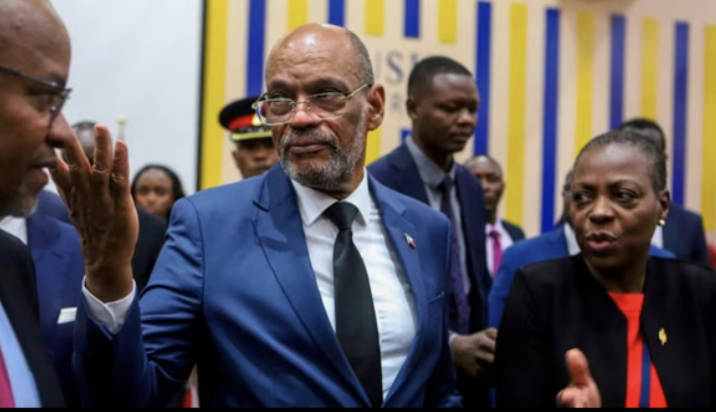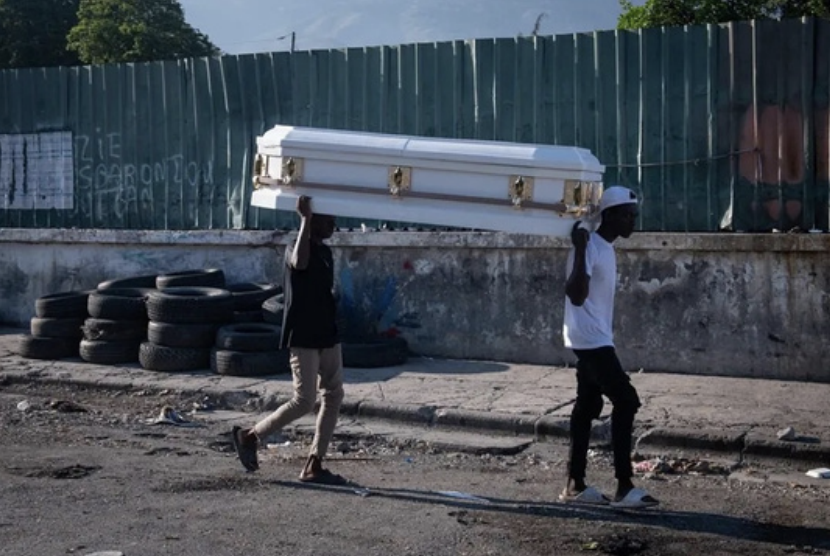Haiti: criminal gangs creating instability and chaos
By: Sofia Barbellon
Photo Credits: France 24
Since its independence, Haiti has experienced an unstable path marked by political instability, extreme violence, debt, foreign intervention, poverty, and natural disasters. All this has led to the violent events that erupted two weeks ago. Haiti was trapped into a redounded cycle because in order to be diplomatically recognized by France, they had to pay them the equivalent of $21.000 million today. When they finally paid it off in 1947, it left them bankrupt. Additionally, they also experienced periods of foreign intervention, which contributed to aggravate their economic situation. Corruption and political instability have remained prevalent throughout Haiti’s history as a sovereign nation.
Don’t worry about sounding professional. Sound like you. There are over 1.5 billion websites out there, but your story is what’s going to separate this one from the rest. If you read the words back and don’t hear your own voice in your head, that’s a good sign you still have more work to do.
Be clear, be confident and don’t overthink it. The beauty of your story is that it’s going to continue to evolve and your site can evolve with it. Your goal should be to make it feel right for right now. Later will take care of itself. It always does.
Whilst the country already had economic difficulties, in 1986, at the end of the corrupted 29-year-long Duvalier dictatorship, the country was left with close to no economic resources. After a series of democratic alternations, businessman Jovenel Moïse won the elections in 2016. However, after violent protests and corruption allegations, the president was killed by Colombian mercenaries in July 2021. Following his death, armed groups seized control over large parts of the country. Moïse’s prime minister, Ariel Henry, assumed power, but because of the resurgence of protests, he was forced to resign two weeks ago.
This brings us to the events that took place at the beginning of March. With gangs controlling 80% of the country, one of their leaders, Jimmy Chérizier, threatened to start a civil war that could lead to genocide if the prime minister did not resign.
Photo Credits: BBC
Since the beginning of Henry’s mandate, poverty and violence aggravated; for instance, 63% of Haitians were living with $3,65 a day. Although he promised elections, three years after Moïse’s death, nothing had been planned. This only increased people’s discontent as they didn’t feel represented. Haitians had been protesting since February, but Henry only responded with calls for calm and unity and then proceeded to travel to Kenya. There, he signed an agreement for the deployment of a multinational police force to help combat gang violence. Ironically, those gangs where the ones that prohibited his reentry into the country upon his return from this trip and that ultimately forced him to resign.
Both the Caribbean Community and the Biden administration agreed that Henry's resignation was in Haiti's best interest. These gangs have been competing against each other to fill the void the murder of the former president Moïse caused. Experts affirm that corrupt politicians back these armed groups, providing funds and political protection. In exchange, gangs spread fear and maintain stability or instability, as required.
After a month of constant protests, shootings, sexual violence, and a massive prison break-primarily led by Jimmy Chérizier and Guy Philippe, former police agents, the prime minister finally agreed to resign. However, the situation has become extremely violent. Gangs are now better armed than the police, preventing humanitarian agencies from aiding those in need, exacerbating hunger and poverty. The main hospital in Port-auPrince has barely any medical staff to take care of injured civilians due to the protests, and corpses are left in the streets.
Although European and American diplomats were able to leave the country, despite the airport’s closure for the past two weeks, Haitians cannot and have to keep working while constantly being exposed to violence and looting by armed groups.
Photo Credits: Agencia EFE
Last but not least, besides Haiti’s historical background, other explanations must exist to understand Haiti’s modern history. Jake Johnston, a writer and economist at the Center for Economic and Policy Research in Washington D.C., suggests that a possible explanation is the accumulation of failed military interventions and humanitarian aid. He argues that for aid to be productive and sustainable, it must involve direct collaboration with Haitians and address their needs. Johnston believes that international interventions have weakened the Haitian state, creating an environment where armed groups can thrive. This situation results from an unsustainable status quo established by foreign forces, that has marginalized a large part of the population, leaving them with no options, and leading some to take up arms due to a lack of opportunities.




